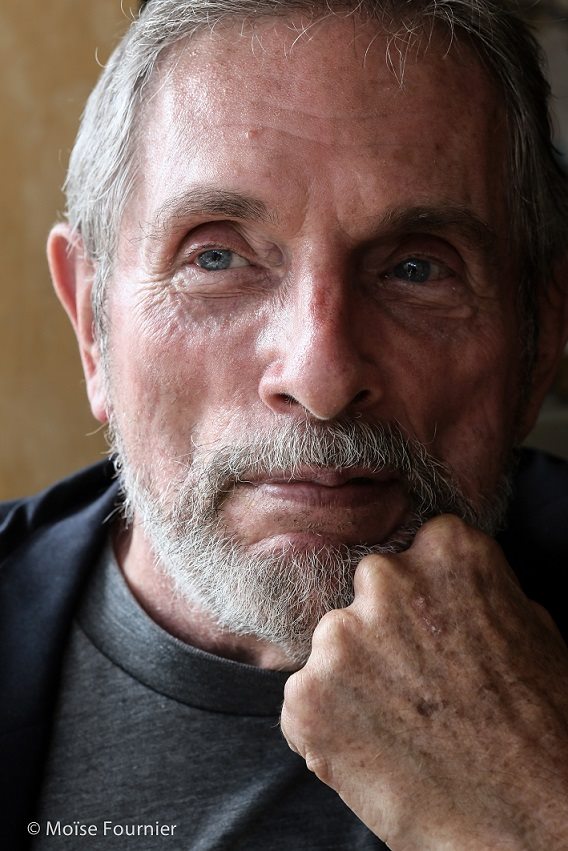 As a boy, growing up in Cameron Parish, La., Robert Desmarais Sullivan was disciplined for speaking his first language at school. His mother, aunts, and uncles spoke only French, but it was forbidden in class. Children were punished by being put in a corner and forced to kneel on corn kernels.
As a boy, growing up in Cameron Parish, La., Robert Desmarais Sullivan was disciplined for speaking his first language at school. His mother, aunts, and uncles spoke only French, but it was forbidden in class. Children were punished by being put in a corner and forced to kneel on corn kernels.
In 1915, Louisiana’s Board of Education prohibited French in the public schools. French was re-introduced to Louisiana schools in 1969, however, and later protected by a mandate. Sullivan now wants to help Louisianans appreciate the rich culture of Louisiana’s native literature through an informal class on Meetup, starting this month, in celebration of the city’s tricentennial.
There have been three phases of French literature in Louisiana, Sullivan explains. Colonial documents created 1718-1803 are mostly journals written by early explorers and settlers, including fascinating letters written by an Urusuline nun to her parents back home in France. The second phase was the early period of statehood, 1803-1863. Before the Civil War, Louisiana was officially bi-lingual. Most literature, including poetry, novels and operas, as well as all legal documents were published in both English and French. “New Orleans had a thriving literary tradition,” Sullivan says. Creoles sided with the Confederacy, so Gen. Benjamin Butler, the Union officer in charge of New Orleans’ occupation, suppressed French documentation in the judicial system.
Dana Kress, a professor at Centenary College in Shreveport, has collected historical Louisiana French texts and posted them in an online library, “Bibliotheque Tintamarre: Oeuvres louisianaises sur internet.” Sullivan will be drawing from this trove for his upcoming class.
Acadian or Cajun French is the language of Renaissance French writer, humanist, physician and monk Francois Rabelais (1494-1553) while French Creoles spoke the tongue of the 17th century playwright, actor and poet Moliere (1622-1673), more than 100 years later, Sullivan explains. Variation in time periods account for dialect differences in vocabulary and pronunciation. The Academie francaise, founded in 1635, purged “impurities” from the language and formalized the proper rules of the language.
Louisiana-French Literature/Litterature franco-louisianaise will meet at First Unitarian Universalist Church, 2903 Jefferson Ave., New Orleans, on Tuesday evenings, starting June 26 at 7:00 PM. The class with begin with 19th century poetry and move to contemporary poetry and songwriting by Acadian activist and performer Zachary Richard.
La première session aura lieu à 19h (7:00 du soir) le mardi 26 juin 2018 à 7826 avenue South Claiborne à la Nouvelle-Orléans. Pendant la première session, on lira des poèmes du site Tintamarre et des paroles de chansonniers comme Zachary Richard, Bruce Daigrepont, Blind Uncle Gaspard et d’autres.
Sign up here.
 NOLAbeings Multimedia artist Claire Bangser created NOLAbeings as a portrait-based story project that marries...
NOLAbeings Multimedia artist Claire Bangser created NOLAbeings as a portrait-based story project that marries...  Voodoo in New Orleans: Reviving history: New Orleans fortune telling This article takes a deep dive into the history of Voodoo in New Orleans, its hybridization with Catholicism, and its present-day place in the city's culture. The author visits fortune-tellers in the French Quarter, using their guidance as a tool for introspection rather than a deterministic predictor of the future. Through her experiences in New Orleans, the author feels a mystical connection to both the past and the future.
Voodoo in New Orleans: Reviving history: New Orleans fortune telling This article takes a deep dive into the history of Voodoo in New Orleans, its hybridization with Catholicism, and its present-day place in the city's culture. The author visits fortune-tellers in the French Quarter, using their guidance as a tool for introspection rather than a deterministic predictor of the future. Through her experiences in New Orleans, the author feels a mystical connection to both the past and the future. 